With the poverty rate rising just weeks away from the presidential election, President Mauricio Macri is struggling to address another problem casting a shadow over his re-election hopes.
Poverty in Argentina rose from 32 percent to 35.4 percent in the first six months of the year, data from the national statistics bureau showed this week – the highest level since the economy collapsed in 2001. More than a third of those considered poor live in the country's 31 large urban centres, INDEC said.
Speaking before the report's release at a campaign event for the 27 October elections, Macri said this week that “unfortunately [the numbers] will reflect the situation we are experiencing and although it hurts, we have to look at it head on."
Historically, the worst poverty figures in Argentina were seen after the 2001 crisis, when INDEC calculated that more than 55 percent of the population were poor. That swing followed the ending of the fixed exchange rate regime and came amid nationwide privatisations. Since then, the poverty index – which authorities say includes people who cannot buy food or other basic products and services such as clothing and transport – dropped to an estimated 26 percent in 2013.
"The devaluation [in August, which saw the peso slump by 20 percent against the dollar], which occurred after the INDEC measurement, is already going to start to impact on poverty rates. Above all, in the next three months, [another] devaluation will generate another rise in poverty," sociologist Daniel Schteingart, of the private Metropolitan University, told the press.
The destitution rate, or extreme poverty, which measures those considered poor who cannot meet their minimum needs of any kind, increased from 6.7 percent to 7.7 percent from the second half of 2018 and in first half of 2019.
During Macri’s second year in office in 2017, poverty stood at 25.7 percent. Since then, the rate has continued to climb, alongside a persistent recession that has dragged on since last year, when the economy fell 2.5 percent. Unemployment now stands at 10.6 percent.
Macri ran on a “zero poverty” campaign during the 2015 elections and that, as well as a series of other promises, that took him to the Casa Rosada.
To win re-election for four more years, he must now come back from the major setback suffered in the 11 August PASO primaries, when Peronist challenger Alberto Fernández, the frontrunner to win in October, beat him by more than 16 points.
Impact of inflation
In Greater Buenos Aires, the periphery of the capital and Argentina's most-populous region, poverty now exceeds 34.8 percent, according to INDEC. Argentina has around 45 million inhabitants, but the bureau's study measures only the 31 largest urban areas.
"Inflation is wearing down the purchasing power of the poorest sectors and the lower middle classes," said Agustín Salvia, the director of the influential Observatorio de la Deuda Social of the Universidad Católica Argentina (Social Debt Observatory of the Catholic University of Argentina, UCA), earlier this week.
Macri has said that Argentina has "[the] productive agricultural potential to feed 400 million people," but the nation is struggling to everyone. Inflation this year will close out at 55 percent, according to Central Bank calculations.
Fernández, the Frente de Todos opposition candidate, argued this week that the administration "is going to end its term with 40 percent [of Argentines] poor."
Many are struggling to make ends meet.
"To compensate for the loss of purchasing power, many households look for supplementary income," a report from the Elypsis consultancy firm said on Monday.
Faced with pressure from further demonstrations from the social organisations and union groups, Congress recently passed a food emergency bill to aid those worse-off. The law includes a 50-percent increase in food aid and assistance, equivalent to about eight billion pesos (US$ 135 million).
– AFP




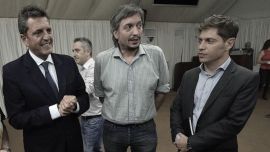



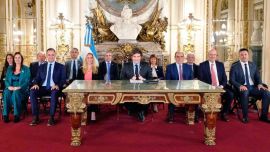
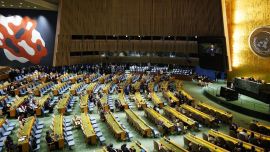
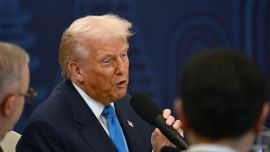

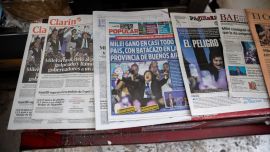
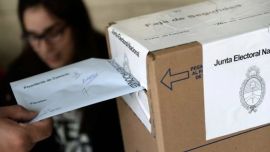
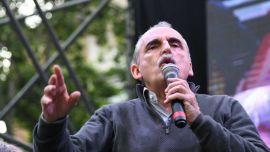



Comments